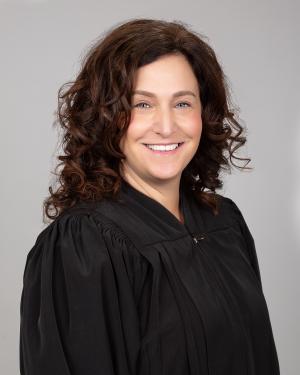The Classroom is Only the Beginning
Practice of law requires a lifelong commitment to learning

By Judge Brenda Weksler
During law school, students are constantly waiting: waiting for grades, waiting for job offers, but waiting most for that special moment to feel like “real” lawyers. While reading and discussing cases are essential—if not foundational—parts of becoming a real lawyer, there is more. Simulations and hypotheticals are critical and traditional parts of law school, but they are not the end-all. Neither are class rankings nor memberships in law journals.
The truth is that becoming a “real” lawyer requires an experiential education.
I remember vividly the first day of my summer externship at the Eighth Judicial District Court. As soon as I walked into the courthouse, I could see hundreds of people waiting for their cases to be heard and attorneys speed-walking from courtroom to courtroom. The law became much less theoretical at that moment.
My externship with Judge Kathy Hardcastle gave me the opportunity to discuss and learn about the matters over which she presided. It also allowed me to talk to dozens of attorneys and find out why they had chosen to go into their specific field. In turn, I became interested in indigent criminal defense.
I will forever be grateful to the Boyd School of Law for that experience. Not only did I secure a legal clerkship after that summer; it led me into a 17-year career in indigent criminal defense.
Lawyering is an art that requires persuasion, (re)imagination, and strategy. It is not something that we accomplish once we graduate from law school. Rather, the art of lawyering is a lifelong practice that requires exactly that—practice. Whether in law school or in the field, continuing legal education that builds tangible skills through clinical programs, workshops, and coaching sessions is what will improve the field of law and the capabilities of its practitioners.
Many of us have heard that the purpose of law school is to learn how to think like a lawyer. That is true. But that is not enough. Many schools have recognized that law school must move beyond the case-study method to produce well-rounded advocates.
The William S. Boyd School of Law at UNLV is at the forefront of this decade-plus (re)shift toward experiential learning. It continues to expand its clinical curriculum to allow students the space to lawyer under the mentorship of talented legal educators.
Boyd Law’s clinical offerings — which focus on appellate work, education advocacy, immigration, mediation, misdemeanors, and public policy — support students taking a reduced class load, which in turn allows them to immerse themselves in this time-intensive practical training. Moreover, these clinical programs allow students to apply and experiment with different theories while engaging with real, complex issues. And most importantly, this practical training positions students to help and advocate for clients facing serious and difficult problems.
But these opportunities do not need to end simply because students have come to the end of their law school career. It is called “the practice of law” for a reason. It requires an ongoing desire to learn and re-learn, to use acquired skills, and to acknowledge when those skills no longer serve us. Instead of constantly waiting, it is constantly evolving.
My message to students is to continue taking advantage of opportunities after law school that will allow them to continue to grow as lawyers. Pro bono work is a wonderful way to expand abilities. This may very well require students to step out of their comfort zone and legal specialty. But it is also an opportunity to advocate for those whose voices would otherwise not be heard.
There are several practical advantages to engaging in this work. Many programs (such the Legal Aid Center of Southern Nevada) offer mentorships, continuing legal education, and trial skill programs to those who are willing to volunteer their time as pro bono counsel.
While students’ formative years may come to an end on graduation day, their education is only beginning. It is the willingness to continue to grow and learn that separates real lawyers from the rest.
U.S. Magistrate Judge Brenda Weksler earned her undergraduate and law degree from UNLV. She is a co-chair for the federal pro bono program Pro Bono - District of Nevada (uscourts.gov).